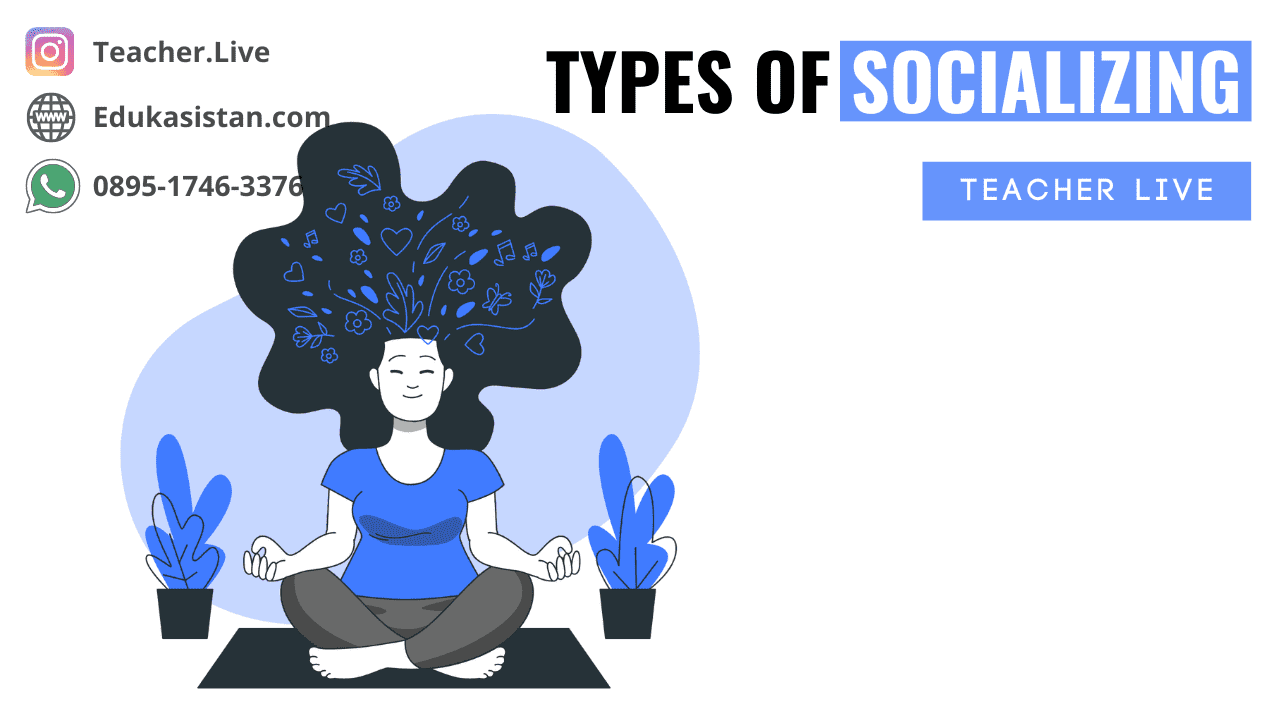Types of Socialization
Edukasistan.com - Hello everyone! Socialization is a crucial process in human life as it influences our development and social interactions. This process begins from birth and continues throughout our lives. Socialization helps us understand social norms, values, and societal rules.
By understanding socialization, we can understand how we interact with others and form our identities. Types of socialization include primary and secondary socialization. Primary socialization occurs during childhood and involves family and the immediate environment.
Secondary socialization happens when we interact with others outside our family, like peers, schools, or workplaces. Understanding the importance of socialization is vital for developing the ability to interact effectively.
By grasping social norms and societal values, we can avoid conflicts and create harmonious relationships with others. Moreover, understanding socialization helps us appreciate cultural differences and the diversity in society.
Therefore, everyone must understand the socialization process to live well in society. In this article, I will explain socialization and its types in detail. Let us read this article to the end!
- Socialization is the process of learning values, norms, and accepted behaviours by an individual from their social environment.
- Types of socialization consist of formal and informal types.
- The formal type includes socialization in educational institutions, organizations, and other institutions.
- The informal type includes socialization in family environments, friends, and the local community.
- Socialization is crucial in shaping an individual's personality and behaviour in society.
What is Socialization?
 |
| Types of Socialization |
Socialization can be defined as the process where individuals learn and internalize norms, values, and accepted behaviours in a particular society. It is the way we learn to become well-functioning members of society. Socialization begins from birth and continues throughout our lives.
Socialization is vital in human development because, through this process, we learn how to speak, interact with others, and understand social norms. With socialization, we can adapt to society and form healthy relationships with others.
Types of Socialization
To effectively understand socialization, individuals need to engage actively in various types of socialization. This includes primary socialization in the family environment and secondary socialization in broader environments like schools, workplaces, and social groups.
There are two main types of socialization: formal and informal.
1. Formal Type
Formal socialization occurs through institutions like schools, universities, and workplaces. For example, students learn academic rules, discipline, and values deemed necessary in education. At workplaces, formal socialization occurs through training and orientation, helping new employees understand the company culture and their roles.
Formal socialization is crucial in education and careers. This process teaches individuals how to function in academic or professional environments. They also learn to respect authority, work in teams, and develop skills necessary for success in the working world.
2. Informal Type
Informal socialization happens through daily interactions with family, friends, and the general community. This is where we learn social norms that need to be formally taught. For example, we learn dining table etiquette, polite ways to speak to others, and how to interact in social groups.
Informal socialization is vital in personal relationships and culture. Through this process, we learn how to communicate with others, build healthy relationships, and understand cultural values passed down from generation to generation.
Conclusion
Socialization is vital in shaping an individual's personality and behaviour and understanding and appreciating cultural diversity. Understanding the socialization process allows individuals to avoid conflicts and create harmonious relationships, enhance communication skills, build healthy relationships, and understand cultural values passed down from generation to generation.
In conclusion, we need to understand socialization and its types. Socialization is a process that affects our development as humans and shapes our identity. Through socialization, we learn the social norms and values accepted in society.
Understanding formal and informal socialization types helps us comprehend how we interact with others in various contexts. Formal socialization helps us adapt to educational and professional environments, while informal socialization aids in building healthy personal relationships and understanding our culture.
As a reader, I invite you to reflect on your socialization experiences. How has this process impacted your development and social interactions? Have you experienced more formal or informal socialization? By understanding socialization, we can become more aware and engaged in society.
Frequently Asked Questions (FAQs)
1. What is socialization?
Socialization is the process of learning and adapting to society by an individual. This process involves social interactions between the individual and their social environment.
2. What are the types of socialization?
Types of socialization include primary, secondary, formal, and informal socialization.
3. What is primary socialization?
Primary socialization occurs during childhood, involving social interactions with family and the immediate environment.
4. What is secondary socialization?
Secondary socialization occurs during adolescence and adulthood, involving broader social interactions like friends, schools, and workplaces.
5. What is formal socialization?
Formal socialization occurs through institutions like schools, religions, and social organizations.
6. What is informal socialization?
Informal socialization occurs through unstructured social interactions like peer groups, family, and social media.
7. Why is socialization important?
Socialization is important because, through this process, individuals learn to interact with their social environment, understand societal norms and values, and develop their social identity.

